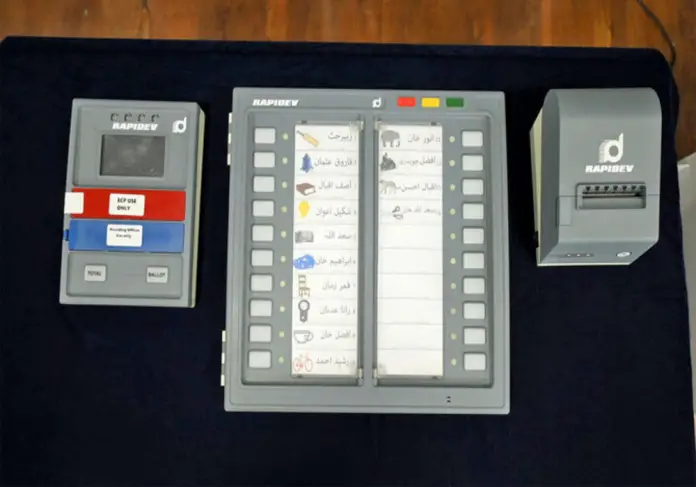Pakistan did not conduct general elections for 15 years after it gained independence from the British rule in 1947. This could be one of the reasons why Pakistan’s democracy did not flourish. Controversies have always surrounded and erupted in Pakistan’s politics whenever elections were held. However, the 1970 election is an exception as it is considered the fairest election in Pakistan’s history, to date.
Although most of the political parties have always opposed the results of elections, voices for free and fair elections echo in Pakistan. Time and again, Pakistan has failed to have fair elections and that raises many questions.
Pakistan’s institutions such as the Election Commission of Pakistan (ECP) have not been able to have fair and transparent elections. The onus is also on our leaders as the legislative aspects are their responsibility. Since they are the ones who choose ECP’s members, they should be held accountable as well. Nepotism, favouritism, and lack of interest demonstrated by our leaders in selecting ECP’s members have damaged the system.
There is also the question of the diminished performance of the ECP, which is quite alarming for our country’s future. Recently, in the Kashmir election the ECP showed poor judgement. The Senate election held in March didn’t present any different story. Prime Minister Imran Khan has also showed his disappointment over the ECP’s role in the Senate election, posing a question to the ECP, “I was disappointed that the ECP declared that the elections had been conducted well. If this was a well-organised election, what do the bad ones look like?”
Even though large sums of money are poured into the ECP every year, it has shown little to no efficacy. Why is this the case, have we ever questioned? Has the ECP become outdated? The balloting method it uses has become obsolete. Sadly, the credibility of the ECP has touched rock bottom over the last few years.
What options do we have then? The use of EVM can prove to be a remedy for rigging in elections. Prime Minister Khan briefed the nation about the intended introduction of EVMs, hoping to mitigate the frauds that occur in elections. Elections are considered to be the backbone of any country’s democracy. If the people of Pakistan do not have confidence in the voting system, it would result in the formation of a weak government, paving the way for non-state actors and anti-democratic elements to intervene in the electoral process.
Fair elections are the need of the hour, and if that is not prioritised by our leaders, Pakistan’s democracy is in deep waters. Prime Minister Khan is confident about EVMs, claiming it to be the only answer to reclaim the credibility of elections. In a series of tweets in May, the Prime Minister reiterated the need to have EVMs, giving examples of the US presidential elections that were held in 2020. Many ministers along with Prime Minister Khan have asserted that EVMs would ensure the end of electoral frauds. As proclaimed by the government, EVMs are not connected to the Internet, and are thus hack proof. But what must be noted is that there are serious issues attributed to EVMs regardless of the said benefits. It would be simplistic to assume EVMs as the silver bullet. Considering EVMs to be the magic wand that will erase every complication of elections is a groundless claim. There is some evidence to suggest that EVMs are not as reliable as they are made out to be.
Recently, an article was published in the New York Times, “The Myth of the Hacker-Proof Voting Machine”. It claimed that EVM is by no means independent from intrusions, and that it is a piece of cake for results to be manipulated, even in the standalone machines. That means that these machines could be changed in the manufacturing stage, resulting in a decrease in impartiality. It seems that there are serious pre-poll and post-poll problems associated with the use of EVMs. All the stakeholders must consider this point sincerely. The assertion of the Pakistan government regarding EVMs has been put in doubt by the article published in the New York Times.
US National Election Defence coalition spokesperson said, “It is a lie to assert that a voting machine or voting system can’t be hacked by remote hackers because they are ‘not connected to internet’. There is no doubt whatsoever that use of voting machine must be stopped-all voting systems must use paper ballots and all elections must be robustly audited.”
The government is hoping to quell post-election issues by providing fair elections. The thing is even if EVMs prove to be useful, the losing parties may not abandon their pattern – that has already caused a great deal of harm to Pakistan – of whining and crying wolf. The objective of using EVMs for a fair election would not be achieved, something that is essential to give the voter confidence in the electoral process.
The PTI government is trying to introduce the use of EVM; however, extreme caution must be shown. Pakistan’s political parties tend to assert that elections are rigged, and they have been wronged. Crying foul has become a tradition; it’s an utterly untoward phenomenon in Pakistan’s politics as most politicians are unable to accept their defeat in elections.
Taking these factors into account, we need more than just EVMs to eradicate the blame game and the plague of rigging from Pakistani politics.







